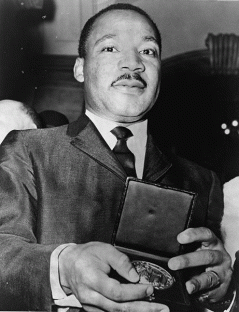In 1970, William Cornelius Sullivan, associate director of the Federal Bureau of Investigation and Charles D. "Chick" Brennan, his chief investigator, ran a clandestine and illegal operation code-named COINTELPRO that targeted domestic political activists for improper police attention and harassment. Mark Felt, better known as "Deep Throat" of Watergate infamy, was head inspector of the FBI and oversaw all COINTELPRO operations.
The 'Omaha Two' were leaders of Omaha, Nebraska's Black Panther chapter and the main targets of Omaha's FBI office. Sullivan was the Bureau spokesman for the COINTELPRO operation against the pair while Brennan approved and monitored reports from the Omaha office where he used to work. Felt was on the distribution list for the Omaha memos and kept track of the case for the FBI director, J. Edgar Hoover.
Edward Poindexter and Mondo we Langa (formerly David Rice) knew they were under surveillance and regularly experienced police harassment with frequent traffic stops. Mondo we Langa was hauled before a federal grand jury investigating him but they were unprepared to be charged with the August 17th bombing murder of an Omaha police officer, Larry Minard. Unfortunately for the two activists, Felt, Sullivan and Brennan were well experienced with breaking the rules and employing dirty tricks regardless of the legality or moral fitness of their actions.
Sullivan would later freely admit to a U.S. Senate investigating committee that COINTELPRO was a "no holds barred" operation and that the only rule was avoiding getting caught.
The three ranking FBI officials had perfected their technique waging Hoover's hidden, illegal wars against targets he deemed a threat to the national order. The biggest target that Brennan and Sullivan had worked was Martin Luther King, Jr.
The illegal surveillance of King by the FBI lasted for years and covered three different phases authorized variously by J. Edgar Hoover, Robert Kennedy, and William Sullivan. Hoover first ordered the wiretaps and hidden microphones on King in the late 1950's before COINTELPRO was officially implemented under the rationale that Communist influences had to be rooted out. Robert Kennedy ordered the second round of secret monitoring in the early 60's to keep tabs on the civil rights movement. Sullivan ordered more surveillance in the mid-60's on his own initiative to obtain political intelligence. The hidden world of FBI dirty secrets is occasionally revealed in oft-redacted confidential COINTELPRO memos that have emerged piecemeal through Freedom of Information requests and litigation.
After King's "I Have A Dream" speech at the March on Washington an indignant Sullivan wrote to Hoover the speech was "demagogic" and that "We must mark [King] now, if we have not done so before, as the most dangerous Negro of the future in this Nation." Sullivan cautioned, "[I]t may be unrealistic to limit ourselves as we have been doing to legalistic proofs or definitely conclusive evidence that would stand up in testimony in court or before Congressional Committees."
As events progressed Sullivan kept up his drumbeat to Hoover calling King, "the most dangerous and effective Negro leader in the country" while "we are right now in this nation engaged in a form of social revolution."
King's home was wiretapped, King's attorney Stanley Levison's office phone was tapped, the Southern Christian Leadership Conference's office tapped and hidden microphones placed in King's hotel and motel rooms as he travelled the country. Warrants were never obtained for the illegal entries to install listening devices.
In the fall of 1963, Brennan, always eager to please Sullivan, authored an 11-page monograph titled Communism and the Negro Movement--A Current Analysis. Brennan pointed out that King was "an unprincipled man" and thus dangerous.
"As the situation now stands, Martin Luther King is growing in stature daily as the leader among leaders of the Negro movement. Communist party officials visualize the possibility of creating a situation whereby it could be said that, as the Communist party goes, so goes Martin Luther King, and so also goes the Negro movement in the United States."
Brennan's memo to Sullivan about King was popular with Hoover who ordered copies sent to the White House, the Pentagon, the Attorney General and several cabinet members. President Kennedy was angered that Brennan's memo had been sent to the military and considered it very unfair and one-sided. Robert Kennedy ordered a recall of the memo although Hoover would later claim the recall was his idea.
In December 1963, Sullivan decided to accelerate the investigation of King and convened a headquarters meeting of various field offices and senior FBI staff to discuss King. Sullivan's message to the gathered officials and special agents was, "We must continue to keep close watch on King's personal activities." Sullivan declared that King was "unfit" to serve as a minister as a result of information obtained from the wiretaps that King had a "weakness in his character."
Sullivan wrote a memo declaring, "We will at the proper time when it can be done without embarrassment to the Bureau, expose King as an immoral opportunist who is not a sincere person but is exploiting the racial situation for personal gain." Sullivan wanted to "expose King for the clerical fraud and Marxist he is at the first opportunity."
After King was named "Man of the Year" by Time magazine, Sullivan authorized bugging King's hotel room. In another memo, Sullivan detailed that "trespass is involved" however "I authorized Washington Field Office to make effort to secure microphone coverage of King provided full security would be assured."
(Note: You can view every article as one long page if you sign up as an Advocate Member, or higher).





